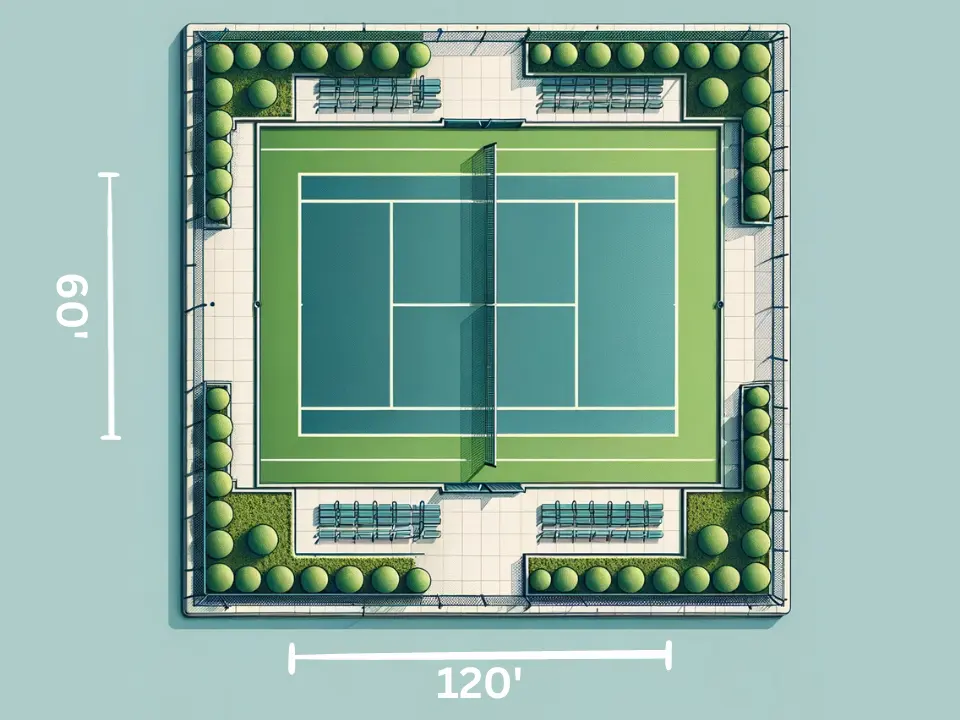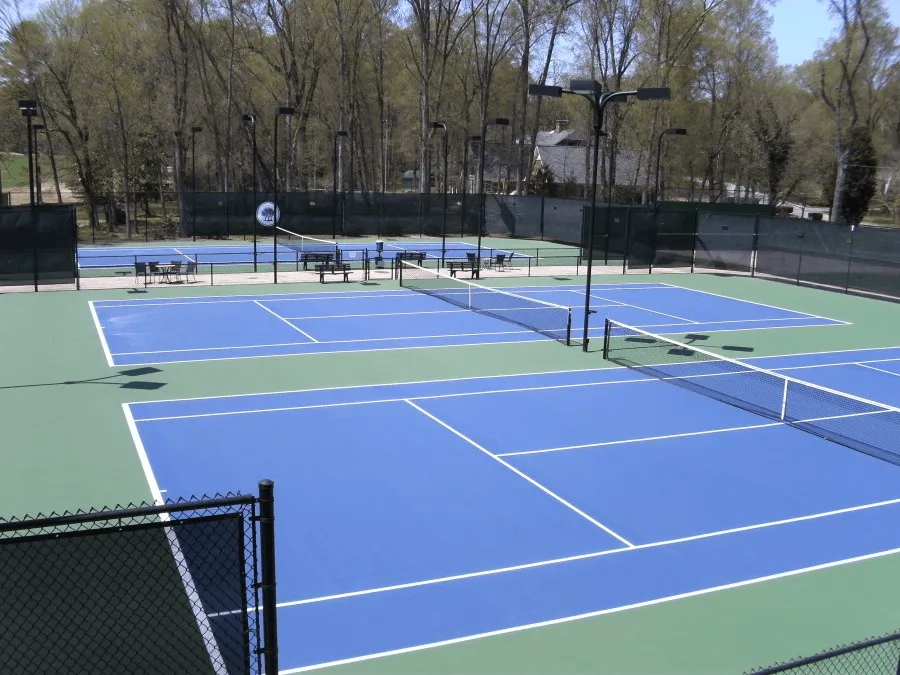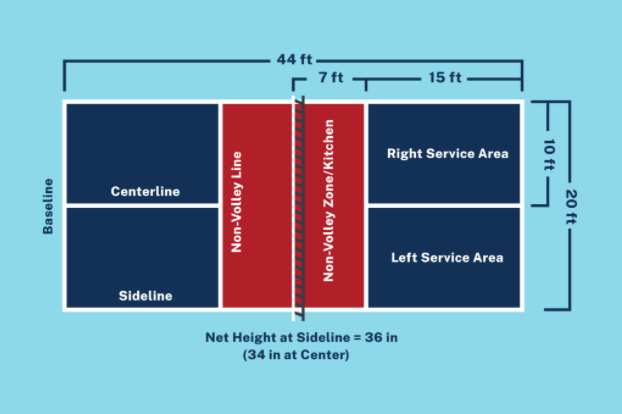
If you’re thinking about designing the perfect backyard court, you want to make sure you’ve done your homework. There’s a lot that goes into constructing a basketball court, tennis court, or pickleball court.
The professionals at North State Resurfacing know what it takes to design an outdoor court that is made to last. We’re going to share some tips so that you can have the game court of your dreams!
Placing Your Court
No matter what type of court you’re looking to build, you want to think about where you’re going to put it. Determine if you have enough room and what kind of conditions you’ll have to play on. Look to see if there is shade where you want to play or if you’ll be dealing with full sun. This can be a huge deciding factor on where you place your court.
Also, take safety into account. Is the area flat and suitable for playing? You want to have optimal conditions if you’re going to invest in a court whether it’s tennis, basketball, or pickleball.
Tennis Court Construction
Dimensions
The outside dimensions of an official court measure 60′ x 120′, with additional space for drainage and root control. In North Carolina, the property line must be established first to ensure there is a minimum setback. This is the space set by local officials that regulates how close to a property line you are allowed to build a structure.
If you’re building a tennis court on your property, you may want to consider a more compact court. Some people opt for half courts or single courts.

Material
If you’re going to invest in a tennis court, you want to choose materials that are built to last. Here are some options to consider:
Grass
Grass courts are usually associated with Wimbledon’s courts. These need constant maintenance and can be very expensive to install.
Clay
Clay can be the most inexpensive court to install, but it can require a good amount of maintenance to remain playable.
Asphalt
Asphalt courts are also cost-effective when compared to other surfaces. They’re also low maintenance which makes them an attractive option.
Post-Tensioned Concrete
Concrete is a long-lasting material that can withstand a lot of play. While it may cost more to install, it requires little maintenance.
Turf/Astro-Turf
Turf gives the same feel as grass without the expensive upkeep. This is a great option if you like to play on grass.
Orientation of the Court
Look to see how the sun will hit your court and if there is ample shade. If you’re in an area with hot temperatures, you want to try to align your court so the sun is not beating down on it that often.
Also, consider the wind. Don’t choose an area with high gusts. This will distract gameplay and make for an unpleasant experience.

Foundations & Drainage
Look to see that the soil composition can withstand the weight that a tennis court will bring. Also, check to see that the court is safe from any potential water damage. Look at the drainage is in the area. You want to be sure there is a subtle incline so any liquid can move away from the court.
Lighting & Fencing
Be sure there is fencing around your court and lighting for safety. Vinyl-coated chain link fences are popular to enclose tennis courts. But, there are many other materials to choose from. Select the one that best suits your court and your budget.
If you want to play at night, you need ample lighting. When you have the professionals at North State Resurfacing construct your tennis court, we will make sure you have the right amount of lighting to play when the sun sets.
Pickleball Court

Dimensions
A regulation-sized pickleball court is 30 feet wide by 60 feet long. Be sure you have enough space to accommodate that.
Materials
Common types of pickleball court surfaces include:
Concrete
This is the best choice when it comes to value and durability.
Asphalt
While this is more affordable, it can require additional maintenance which may end up costing you more in the long run.
Snap-Together Plastic
Snap-together court surfaces can be placed over asphalt or concrete. This can be helpful if you don’t want to permanently change the surface of a multi-use court.
Fencing & Lighting
There are many different types of fencing materials to choose from for your pickleball court. The most common are made from wire. Be sure whatever material you choose is covered with rust-resistant materials.
Typically, all pickleball courts should include two 1,500-watt light poles. Be sure each pole is 18-20 feet high and mounted in the center, at least 24 inches away from the court.
Basketball Court
Dimensions
The standard dimensions of a high school or college basketball court are 50 feet wide by 84 feet long. This is typically what is used for an outdoor court. It’s preferred that there is at least another 10 additional feet of unobstructed surface on all sides. This would bring the total making the minimum recommended surface area to approximately 70ft by 104ft. For proper drainage and root control, extra space beyond the perimeter of the court is also advised.
Also, don’t forget about local zoning rules. There is typically a minimum distance from the property line that you are allowed to build.
Surface
Outdoor basketball courts are typically made from asphalt tarmacadam or polymeric rubber crumb. Asphalt tarmacadam is harder than polymeric rubber. While it has better performance, it is more expensive. You can customize asphalt tarmacadam in its color and lining. Polymeric rubber is also a popular choice because it is softer than tarmacadam, but still has a high bounce.
Basketball Court Accessories
You can’t forget about the accessories for your new basketball court. Outdoor lighting, fencing, and windscreens are all options. At North State Resurfacing, our pros will recommend which accessories would best suit your new court.
Are You Looking to Build an Outdoor Court? Call the Pros at North State Resurfacing
Whether you’re looking to build a new tennis, pickleball, or basketball court, North State Resurfacing is here to help. Our team of experts can help you design your new court and recommend the best materials. Call us today at (919) 365-7500 or reach out to us online to learn more and get a quote on your project!
